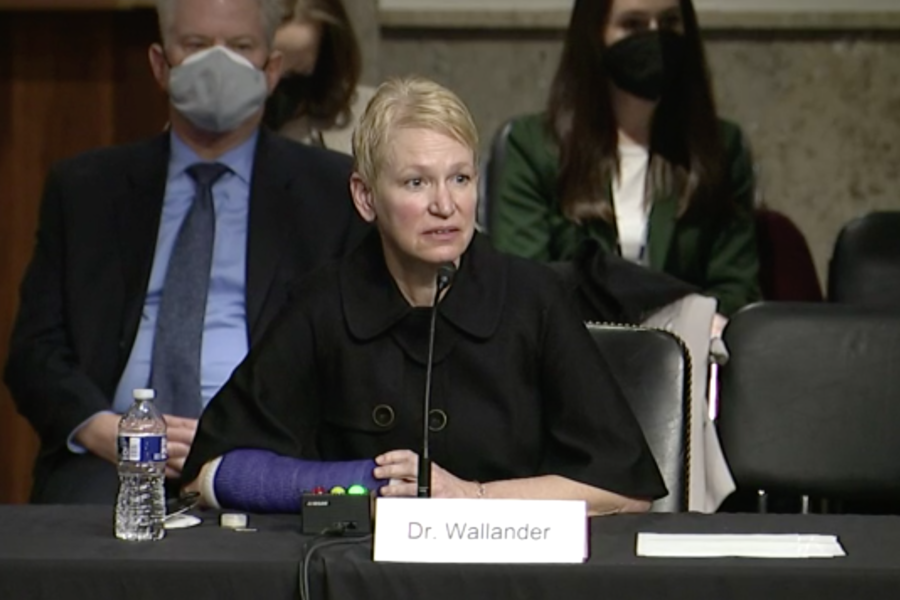In 2014, Celeste Wallander was the senior director for Russia and Central Asia at the National Security Council, under President Barack Obama, when Russia launched its invasion of the Crimean Peninsula, seizing the territory from Ukraine.
Now, nearly eight years later, Wallander is President Joe Biden’s nominee to be assistant secretary of defense for international security affairs, and Russia is once again threatening to invade Ukraine, massing troops along the border and thus far resisting calls from NATO members to de-escalate the situation.
Looking back at what happened in 2014, the U.S. needs to be faster and more forceful in response to any Russian aggression, Wallander told members of the Senate Armed Services Committee at her confirmation hearing Jan. 13.
“I believe that the lessons of 2014 were that the United States needs to be, first and foremost, unified with our allies and partners, not only in Europe, but globally, in order to promote a unified front to the Kremlin and make them understand that they cannot divide us,” Wallander said. “And the second lesson would be to rapidly develop ways to impose costs on the Russian leadership and to support Ukraine in defense of its territorial integrity and sovereignty.”
Pressed by Sens. Roger Wicker (R-Miss.) and Tom Cotton (R-Ark.), Wallander added that the 2014 response was “too slow and too incremental” and that to provide aid to Ukraine—weapons such as the FGM-148 Javelin, an anti-tank missile—would have been “appropriate and necessary.”
In 2022, the situation has not yet devolved to the point of open conflict. But there are plenty of fears that it will. On Jan. 13, Polish Foreign Minister Zbigniew Rau, the chairman-in-office of the Organization for Security and Cooperation in Europe, warned that the risk of war in Europe “is now greater than ever before in the last 30 years,” according to media reports.
Driving much of those fears is the seeming lack of progress in diplomatic discussions. Russia has demanded that Ukraine be barred from ever joining NATO and that the alliance withdraw all troops and weapons from any countries that joined NATO after 1997. The U.S. has rejected those ideas as “non-starters.”
Some analysts have suggested that Russian President Vladimir Putin’s demands were never intended to be part of a negotiation and instead might even be a pretext for invading Ukraine.
Sen. Angus King (I-Maine) seemed to voice that very concern in questioning Wallander, saying Putin is “setting up these negotiations to fail, and leaving himself very little option other than either a humiliating retreat or invasion.”
“What do you make of this unusual negotiating strategy where you make demands that you know aren’t going to be met?” King then asked Wallander. “And is this just a pretext for an invasion?”
Wallender seemed to agree.
“Senator, I share your analytical assessment of the possible courses of action and the reasons for the demands that Russia has made publicly,” Wallander said. “And it concerns me greatly for Ukraine’s security and, indeed, for European and Euro-Atlantic security.”
At least for the moment, though, the Pentagon is still publicly holding out hope for avoiding any conflict.
“We have no indication that President Putin has made a decision to launch another incursion into Ukraine,” DOD Press Secretary John F. Kirby said in a press gaggle Jan. 13. “He clearly continues to have a military capability that would allow him to move on Ukraine. And we’ve seen no indication … that he has decreased that capability in any way. But we still don’t believe that a final decision by Mr. Putin has been made. And that’s why we continue to believe that there’s still space for diplomacy and hopefully time for diplomacy, and we support that effort.”
Pentagon Editor Abraham Mahshie contributed to this report.
